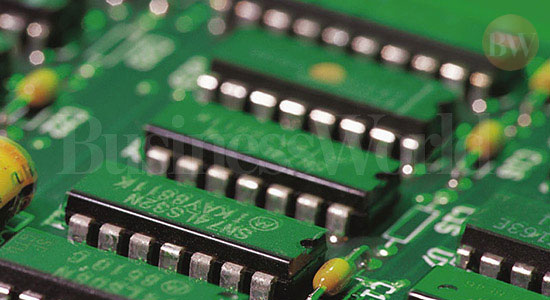MANILA – The electronics industry is aiming for a turnaround following an unexpected dip in exports last year.
Outbound shipments fell by 0.1 percent to $28.871 billion in 2016, and the Semiconductor and Electronics Industries in the Philippines (SEIPI) is hoping for 5 percent growth this year.
Dan Lachica, SEIPI president, said, “we actually expected 6% growth last year but there were events that disrupted that.” He cited as example the “misinterpretation of what the President said, in terms of exercising our option to trade with other countries.”
This, he said was mistakenly viewed as a “turning away” from the US or European Union countries which are big export destinations. “But now they’ve seen that is not the case.” Lachica cited as well “exaggerated news about the situation in the Philippines” as part of the disruption, but said “we expect the situation to normalize and get back on track.”
Lachica touted attendance at the 4th Philippine Semiconductor and Electronics Convention and noted that for the first time, Chinese companies are participating.
To move the industry up the value chain beyond testing and assembly, SEIPI officials said they were looking to strengthen partnerships with academic institutions and also focus more on innovation and desig
Curveballs notwithstanding, the semiconductor industry is bullish that 2017 will be a return to growth. And with the help of linkages with a number of academic institutions where these two technology mascots came from, the industry is hopeful that this time, nothing will short-circuit growth.
A French politician promoting the World Electronic Forum this October also noted export opportunities for the Philippines.
Christophe Bechu, mayor of Angers and WEF 2017 president, said, “a lot of French companies only see China, and they don’t realize the revolution the Philippines has made with probably 6 million people working for the electronic industry; and so at the moment, for the French company to create opportunity equally to invest or have partner in the Philippines, I’m sure its a win-win deal.”
Some industry officials, however, expressed concerns over tax reforms pending in Congress, particularly the imposition of sales taxes on local suppliers. They said that manufacturers could be forced to buy from foreign companies or relocate altogether to countries with better perks.
Sunil Banwari, country manager of ON Semiconductor Phils Inc., said, “one thing that really does concern us is the tax reform bill. I can see my headquarters taking a hard look at how we grow in the Philippines if the stimulus and incentives which are currently provided are taken away as being proposed in the current legislation. So that’s a real danger sign and it won’t affect this year but it definitely could affect the semicon seriously in the coming years.”
“With this VAT it’s gonna be cheaper for multinationals and local PEZA companies to be importing materials; gonna be 12% less, so it will kill our local suppliers and SMEs,” predicted SEIPI’s Lachica, alluding to the VAT reforms embodied in the overall tax reform package approved by the House of Representatives and set to be tackled by the Senate when Congress resumes session on July 24.
Lachica said, “we will support the government initiatives but our appeal really is let’s not kill the local suppliers.”
However, Trade Secretary Ramon Lopez brushed off the concerns, saying the government only wanted to close tax loopholes and that incentives would remain available to qualified companies.




